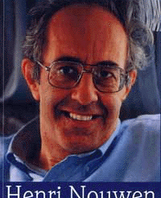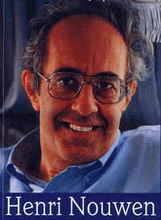Ever since surviving my heart attack on January 9, 2013, I’ve thought that my first post would have the above title. As someone who had too often thought about what it would feel like to win a lot of money and be somehow more “free” or less stressed about life, I thought that this is perhaps a similar feeling. I’ve written about 40 pages of recollections from the seven days that began on the 9th in Montreal, QC, Canada and ended with my flying home to Atlanta, GA, USA on the 15th. I’m only going to share a couple of vignettes in this first post. Hopefully, they are as profound to you as they are to me.
“Shortly, a triage nurse motioned for me to enter her office. It seemed like she quickly assessed what was happening. I handed her my passport, insurance card and a few medicine bottles I had in a plastic bag. She asked if it was okay for Curt and Nathan (friends who had brought me to the ER at Sacred Heart Hospital of Montreal) to complete the paperwork. I said, ‘yes.’ And she said, ‘You come with me!’
We stepped into a larger area with a raised platform in front and lots of activity. Dr. Garner asked me to describe my pain and how long it had been going on. After a couple of diagnostics (EKG, PB, etc.), he asked me to get undressed and lay down on the gurney. Shortly, Dr. Garner said, ‘I’m sorry to say you are having a heart attack, probably from a blood clot. We’re going to try to find it. You should’ve come in earlier.’
I had been having chest pains pretty steadily since about 3:00 PM. It was now about 6:00 PM. I had no idea that the artery that was 100% blocked was the primary delivery artery of blood and oxygen to my body. I was experiencing Acute Anterior Wall STEMI or Anterior Myocardial Infarction that results from occlusion of the left anterior descending artery. A major heart attack. Pure and simple. Minutes mattered and I was about 3 hours into it.
I was stunned, but not really surprised at that point. What else could it be? I had tried to address occasional chest pain for a couple of days as symptoms of esophageal reflux.”
More on what happened next, in a future post…
Here’s the other vignette I wanted to share as the cardiologist who performed the angiogram and angioplasty on me that night shared a few days later.
“The hospital discharge process started late morning on Monday the 14th. My wife Jenny, son Jameson and friend Gus had arrived around 10:30 AM. Dr. Charron came by to pick up his payment in cash that Jenny had brought. I was grateful that Jenny and Jameson got to meet him. He was a late 30s high-energy guy who reminded me of musician and band leader Paul Shaffer. It was during our visit that morning that I learned of the difficulty he had reaching the blockage on Wednesday. He said that a couple of arteries were crossed and he was successful when making a final effort to reach the blockage before resorting to cutting open my chest and doing the surgery from that perspective. He said that doing open heart surgery in emergency situations like mine don’t turn out well. It was not what he wanted to do.
I became even more thankful for the mercy of God, the prayers of His people and the skill and persistence of Dr. Charron and his associates.”
We don’t often learn of the ways God and His angels have protected us or saved us. So, being made aware of our closeness to death is an awareness that makes more precious all of the people and creation around us. I think it is better than winning the lottery.
To be continued…

